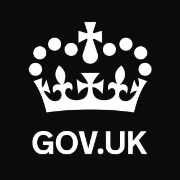What's in a name? The anonymity of most HSJ comments reveals a closed, fearful NHS management culture

David Oliver is an experienced NHS consultant who has played a variety of local and national medical leadership roles, and is a regular columnist for the British Medical Journal.
I’ve been a Health Service Journal reader, subscriber and occasional contributor for many years. It is one of the handful of healthcare sites I learn from every day for updates, insights, speculation, analysis and breaking news.

Anonymity as the default for most HSJ comments
But it strikes me every time I visit that the vast majority of comments below articles are anonymous. The contrast with, for instance the British Medical Journal (where nearly all rapid responses carry the author’s name and role) is stark.
For instance: in four recent articles reporting the Lucy Letby conviction, history and wider ramifications, out of 230 comment-responses, only six carried a name.
“So what?” you might argue. “We don’t want to risk upsetting our local employer, our colleagues, our boss, or NHS England. Why jeopardise our own careers and reputations for the sake of some comments on a message board in a pay walled specialist publication? It isn’t worth it.”
I am certainly not suggesting that the HSJ should stop people posting anonymously. I suspect if it did, most of that lively and often informative below-the-line content would disappear overnight.
Let’s face it, pretty much the only people who use their own names in comments or as HSJ columnists are either so senior and established as to be bombproof, or retired, or clinical practitioners, management consultants or people from private industry or are not in any directly employed NHS line management role.
At the same time, it is very clear to me from the tone, insight and wisdom of the anonymous comments that many of them are very senior NHS managers, executives and leaders. What they say, or write, would carry more weight if we knew who they were.
The contrast with the professional duty of candour for clinical professionals
By contrast, the General Medical Council 'Good Medical Practice' has made it clear that doctors online should identify themselves as doctors, because their professional role carries weight and credibility when commenting on medical issues.
I realise that there is particular sensitivity around the Letby case, an understandable wariness of commenting openly and perhaps a “there but for the grace of God” empathy for some of the senior NHS managers now being slammed in news and social media.
But the “anonymity as standard” approach applies across every HSJ news story, explainer, or comment piece. What bothers me is that there are some very serious issues being discussed by people who are serious, credible and (presumably) often in influential roles.
And yet it is clear that the culture in the NHS management community, from NHS England down, is one that makes most people fearful of saying anything in their own name, in case of reprisal.
Why I find the culture of anonymity disturbing and revealing
We saw this writ large during the Covid pandemic, where local NHS trusts - including comms teams - were leant on heavily from the centre not to engage even with local media in the spirit of communication with local communities.
Instead, they had to seek clearance for any pronouncement. This culture of silence and news management was then passed down to clinical staff.
The people commenting below HSJ articles are not largely Whitehall mandarin, bound by the Civil Service code. Sure, their contracts of employment will have some stipulations around responsible social media use.
But I'm confident that others will agree that it is outrageous that experienced professional NHS managers should feel that they cannot comment in their own name on issues of concern.
Go through any month of HSJ articles, and you'll see discussions of unwelcome, poorly evidenced and ill-conceived performance targets; unrealistic financial control totals; ineffective commissioning and oversight by immature local boards; failure to support or protect whistlebowers; unhelpful regulation and inspection; serious staffing shortfalls and unrest among the clinical workforce; the impact of cuts on public health and social care; inadequate capital investment in buildings and equipment; underfunding of services, inadequate digital technology, wasteful consultancy spend, revolving doors between the private sector and government agencies and clueless ministers.
All human life is there.
Crucially, you will also see discussion of bullying, coercive and suppressive behaviours and poor leadership and management practice – not least from the government and NHS England towards local providers, but falso rom the boards of providers towards staff. This is the culture in which that mass anonymity grows.
Yet the very people charged with running services don’t feel able to put their own names to comments. This is not a uniformed service, where people can be accused of “insubordination”.
No Nolan Principles
Just as clinical professionals are bound by codes from professional regulators such as 'Good Medical Practice' which require candour and transparency and a duty to raise concerns about safety, so senior NHS managers and officials are supposed to be guided by the Nolan Principles of “selflessness”, “integrity”, “objectivity”, “accountability” - and crucially “openness”, “honesty” and “leadership”.

A culture where no-one dares to stick their head above the parapet to make important criticisms in their own name (even when those individuals are manifestly credible, senior and well-informed people in positions of influence) is a million miles from those Nolan principles.
David Oliver

